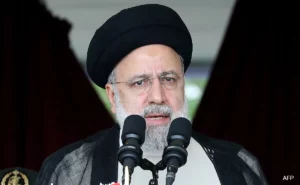Volkswagen ends employment guarantees

Volkswagen
Volkswagen Scraps Decades-Old German Job Security Pact
Volkswagen, Europe’s top carmaker, has announced the cancellation of several labor agreements, including a guarantee of jobs until 2029 at six German plants. This move is part of the company’s cost-cutting drive as it struggles to compete against cheaper Asian rivals and adapt to the changing automotive landscape.The decision to end the three-decades-old employment guarantees has set up a showdown with unions, particularly IG Metall, which represents Volkswagen’s workers. The head of the company’s works council, Daniela Cavallo, has vowed fierce resistance against any potential layoffs or factory closures.
Reasons for the Cancellation
Volkswagen’s decision to scrap the job security pact comes at a time when the company is facing several challenges:
- Weak car sales have left the company with about two plants too many in Germany
- Sputtering transition to EVs and a consumer spending slowdown are squeezing profit margins, particularly at the underperforming VW passenger car brand
- Competition from Tesla and Chinese newcomers like BYD is intensifying in the European market
The company’s human resources chief, Gunnar Kilian, stated that the move is meant to “reduce costs in Germany to a competitive level”.
Implications and Reactions
The cancellation of the job security pact effectively ends the guarantees by the middle of next year. This historic decision has sent shockwaves through the global automotive sector and prompted high-level concern from the German government.IG Metall has previously suggested moving to a four-day work week as an alternative to closures, replicating a cost-cutting measure from the 1990s. Negotiations between the company and unions are scheduled to begin in mid- to late October, with strikes possible from the end of November.The move also challenges Germany’s consensual industrial relations model, which has underpinned the country’s post-war economic development. Manufacturing still accounts for a significant portion of employment in Germany, and the outcome of the negotiations between Volkswagen and unions will have far-reaching implications for the industry.In conclusion, Volkswagen’s decision to scrap its decades-old job security pact is a bold move to address the company’s cost structure and competitiveness in a rapidly changing global automotive market. However, the decision has set the stage for a potential showdown with unions and raises questions about the future of Germany’s industrial relations model.






